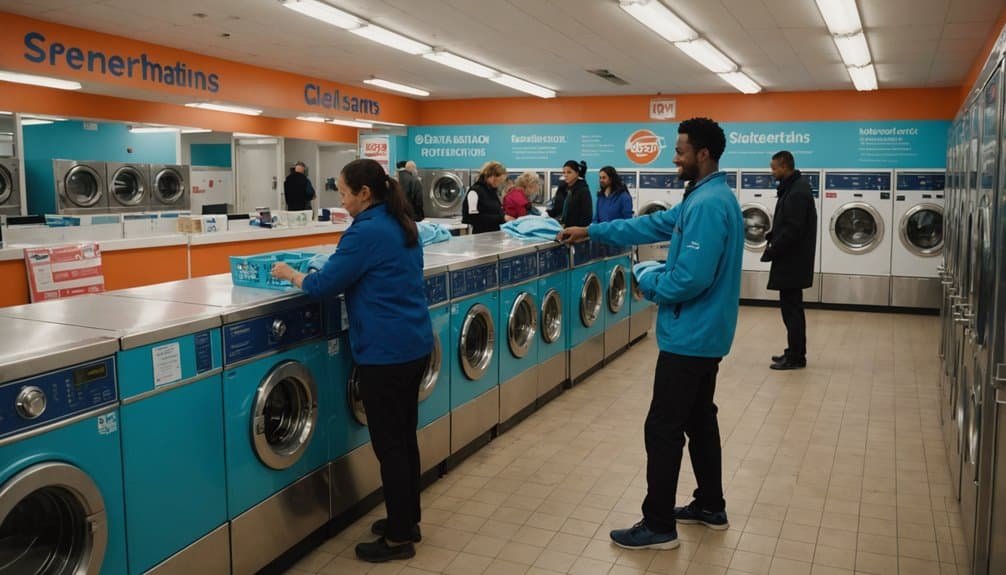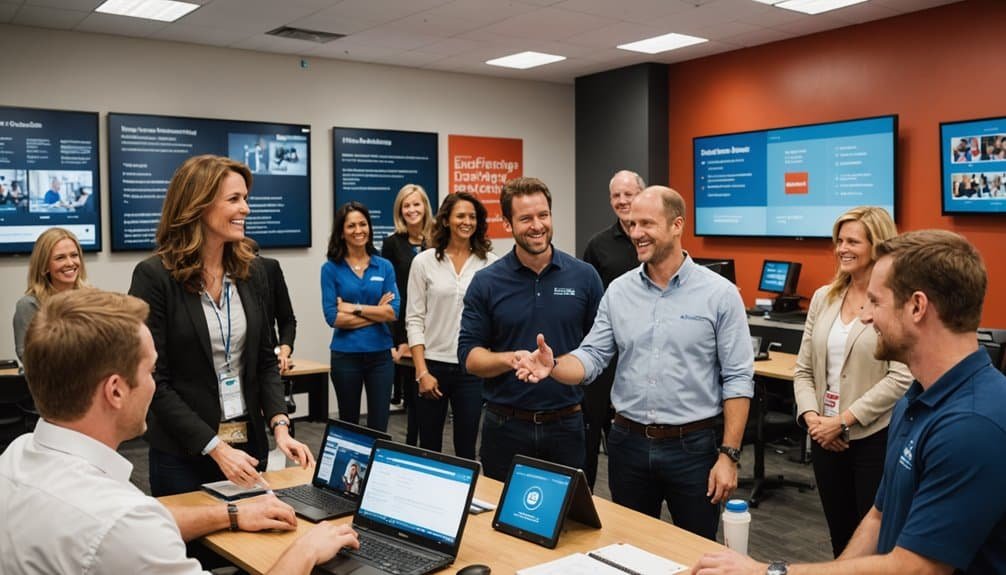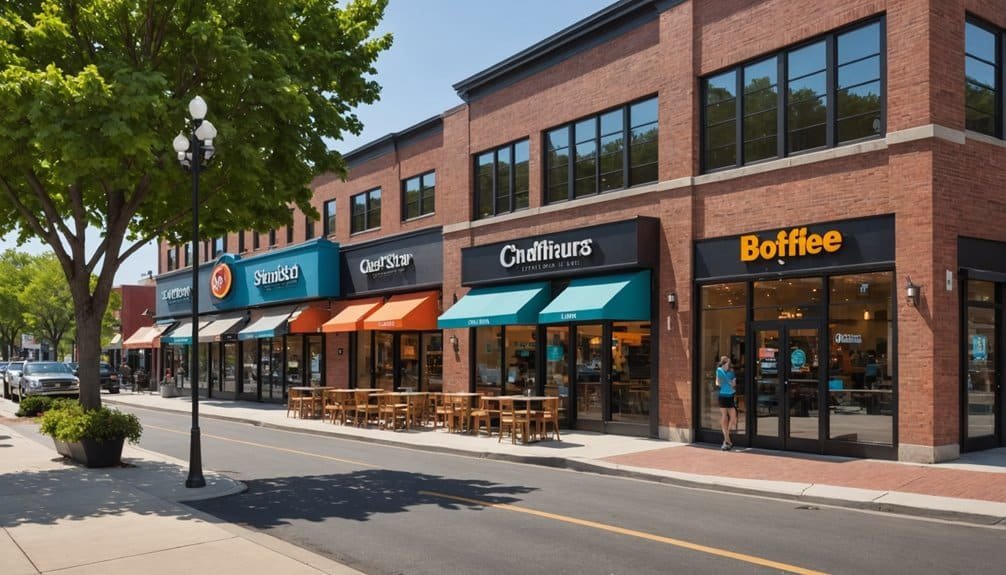I’ll be honest—when I hear words like “AI-proof” or “recession-proof,” I cringe a little. Nothing in business is truly immune to change, and I believe in helping people make smart, informed decisions—not selling them false guarantees. That’s why I prefer to talk about Recession-Resistant Franchises—brands that are built to adapt, not pretend they’re untouchable.
The savvy buyers I work with are asking better questions these days. They want franchises that focus on non-discretionary services—things people need no matter what the economy is doing. They’re also drawn to businesses that use technology in innovative ways, not as a gimmick but as a tool for growth and efficiency.
In this blog, I’ll talk more about Recession-Ready Franchises that stand out in today’s unpredictable world. These brands aren’t perfect, but they’re built on solid ground with apparent demand and firm support. If you’re thinking about buying a franchise, my goal is to help you go in with your eyes wide open.
Key Takeaways: Top Recession-Ready Franchise ModelsKey Takeaway
- Home healthcare franchises like Always Best Care are positioned for growth due to increasing demand from an aging population.
- Service-based franchises, including maintenance and repair, thrive during economic downturns as consumers prioritize essential services over discretionary spending.
- Innovative franchises leveraging AI and multi-unit ownership models ensure operational efficiency and consistent cash flow, enhancing resilience against economic fluctuations.
- The tourism and hospitality sector, particularly wellness tourism, demonstrates recession-resistant demand with strong consumer confidence in luxury services.
- Ongoing franchisee support and training significantly boost productivity, ensuring franchisees are well-equipped to navigate challenges and maintain profitability.
Home Healthcare Franchises: A Stable Investment in Uncertain Times
As the global economy navigates uncertainty, home healthcare franchises emerge as a robust investment option, particularly considering the projected market valuation of $587 billion by 2031. The U.S. segment alone is anticipated to reach $176.30 billion by 2032, fueled by a compound annual growth rate (CAGR) of 7.4%–7.7% through 2035. An aging population and a shift in preference towards affordable, individualized home care services primarily drive this growth. Franchising allows for rapid scaling of operations and strategic entry into new markets, aiding in the effective market penetration of these vital services. However, operational challenges such as labor shortages and regulatory barriers persist. Franchises like Always Best Care and Home Instead offer viable pathways for investors, allowing scalability and access to high-demand markets. As the industry evolves, strategic innovations in telehealth and disease-specific care will further improve franchise stability. At the same time, the rising demand for trustworthy and tailored services among family caregivers underscores the importance of integrating senior care franchises into healthcare networks for continuity of care.
Resilient Tourism and Hospitality Networks
Despite the ongoing challenges posed by economic fluctuations and labor shortages, the tourism and hospitality sectors exhibit remarkable resilience, driven by robust revenue growth and market expansion. Projected franchising output is expected to exceed $936.4 billion by 2025, reflecting a 4.4% increase from 2024. The U.S. hospitality market is anticipated to grow from $247.45 billion in 2025 to $313.87 billion by 2030, showcasing a 4.87% CAGR. Emerging trends, such as wellness tourism, highlight a recession-resistant demand with global expenditures of $1.2 trillion. Significantly, luxury hotel occupancy rates have reached 78%, indicating strong consumer confidence among high-net-worth travelers. This network’s adaptability and strategic regional growth foster a sense of belonging within the community, reinforcing the sector’s long-term viability. Notably, the franchise sector is projected to add approximately 210,000 jobs in 2025, further bolstering its economic impact. Additionally, as franchise ownership grows, financial readiness becomes crucial for aspiring entrepreneurs to capitalize on these opportunities.
Essential Service-Based Franchises: Meeting Non-Discretionary Needs

The resilience observed in the tourism and hospitality sectors extends to diverse service-based franchises, which cater to non-discretionary needs that consumers prioritize during economic fluctuations. Maintenance and repair franchises, such as auto and appliance repair, thrive as consumers opt to repair rather than replace during downturns. Likewise, healthcare and wellness services remain crucial, with medical franchises addressing critical health needs and affordable solutions gaining traction among price-sensitive consumers. Food and beverage franchises, especially grocery and fast-food outlets, also demonstrate consistent demand due to their status as necessities. Additionally, grooming services fulfill ongoing hygiene requirements, reinforcing their importance. Collectively, these franchises illustrate a strategic alignment with vital consumer needs, fostering stability amidst economic uncertainty. Furthermore, industries like repair, recovery, and maintenance tend to perform better during economic challenges, highlighting their essential role in consumer spending priorities. Franchise owners need to have a clear understanding of financial commitments to ensure sustainable operation during tough economic times.
Innovative Franchises Adapting to Economic Challenges
While economic challenges can pose significant threats to many businesses, groundbreaking franchises have emerged by leveraging technology and strategic adaptability to maintain resilience and propel growth. Projections indicate that total franchise output will exceed $936.4 billion by 2025, reflecting a 4.4% increase from 2024. Recession-resistant franchises report 25% higher annual earnings, underscoring their effectiveness in economic downturns. The integration of AI-powered tools optimizes operations, while digital platforms streamline training and compliance. Comprehensive support from franchisors helps franchisees navigate complexities, enhancing their chances of success. Multi-unit ownership allows for consistent cash flow, reducing overhead costs and improving brand visibility. As sectors like health and wellness thrive and fast-casual dining adapts to inflation, franchises demonstrate a capacity for diversification, ensuring stability and growth amidst economic uncertainties. Notably, KOA has been recognized as a Top Recession-Resistant Franchise for 2025, highlighting its exceptional performance during economic downturns.
Franchisee Support Mechanisms for Lasting Success

How can franchisees navigate the complexities of their operations to guarantee long-term success? Effective franchisee support mechanisms are essential. Optimizing support ratios, tailored to operational needs, prevents inefficiencies from understaffing or overstaffing. Ongoing training, shown to improve productivity by 17%, equips franchisees to manage operations adeptly. Additionally, understanding the franchisor’s support system is crucial for franchisees to leverage available resources effectively. Interactive knowledge-sharing platforms foster innovation and align trends across units. Field operations models deliver regionalized support, boosting collaboration and resource allocation based on performance metrics. Financial and operational support, including crisis management tools, addresses startup costs and compliance challenges. Finally, fostering relationship fairness through open communication channels builds trust, which is essential for cooperative success. These structured systems create a supportive environment, underpinning franchisees’ resilience in diverse economic landscapes. A lean ops philosophy emphasizes strategic guidance over routine tasks for staff, enhancing overall efficiency and effectiveness in franchise operations.
Frequently Asked Questions
What makes Recession-Ready Franchises different from traditional ones?
Recession-Ready Franchises are built around non-discretionary services, tech-smart operations, and proven demand. Their structure helps owners maintain stability, even when the economy wobbles.
What Are the Initial Costs of Starting a Recession-Ready Franchise?
Initial costs for starting a recession-ready franchise include upfront fees, monthly operational expenses, equipment, insurance, and potential hidden costs. Financing options and low-cost alternatives can help mitigate financial pressures during uncertain economic times.
How Can I Assess a Franchise’s Long-Term Viability?
To assess a franchise’s long-term viability, one must analyze financial statements, market demand, competitive dynamics, and operational consistency. Significantly, franchises with transparent financial data report 15% higher success rates than those lacking such disclosure.
What Training Is Available for New Franchisees?
New franchisees have access to extensive training programs encompassing initial and on-site training, financial literacy, customer service protocols, and ongoing support, ensuring they develop crucial skills and knowledge for successful franchise operations.
How Do I Find the Right Franchise for My Skills?
To find the right franchise, one must align individual skills with industry needs. This involves evaluating leadership capabilities, analyzing market trends, examining financial requirements, and considering individual passions to guarantee a fulfilling and sustainable business venture.
Are There Financing Options for Franchise Startups?
Financing options for franchise startups include SBA loans, commercial bank loans, HELOCs, and alternative lenders. Moreover, franchisors may offer internal financing, fee waivers, and preferred lender partnerships, enhancing accessibility for aspiring franchisees.
Conclusion
After more than 20 years as a franchise broker, I’ve seen trends come and go—and I’ve helped hundreds of peoplefind the right opportunity for their goals, lifestyle, and budget. The truth is, navigating today’s market takes more than just excitement; it takes strategy, clarity, and a clear understanding of what holds up when things get tough. That’s precisely why I pay close attention to Recession-Ready Franchises.
I don’t believe in hype, and I don’t push one-size-fits-all solutions. My role is to guide clients toward franchises that offer essential services, intelligent systems, and real-world staying power—not just glossy brochures. Recession-Ready Franchises don’t promise perfection, but they do provide a solid foundation, especially when they combine tech-savvy operations with high consumer need.
If you’re exploring franchise ownership and want a trusted advisor who believes in transparency and long-term success, I’m here to help. Because picking the right franchise isn’t just about today—it’s about building something that can weather tomorrow.
References
https://www.franchise.org/franchise-information/franchise-business-economic-outlook-2024
https://www.grandviewresearch.com/industry-analysis/home-healthcare-market
https://www.ibisworld.com/united-states/market-research-reports/home-care-providers-industry/
https://www.statista.com/statistics/1237140/us-hospitality-industry-market-size/
https://globalwellnessinstitute.org/industry-research/global-wellness-tourism-economy/
https://www.franchisedirect.com/information/most-recession-resistant-franchises/
https://www.forbes.com/sites/forbesbusinesscouncil/2023/08/15/how-franchises-can-survive-and-thrive-during-an-economic-downturn/
https://www.franchisehelp.com/franchisee-resource-center/how-to-evaluate-a-franchise-opportunity/
https://www.sba.gov/funding-programs/loans/lender-match
https://www.entrepreneur.com/franchises/topfranchisebrands

